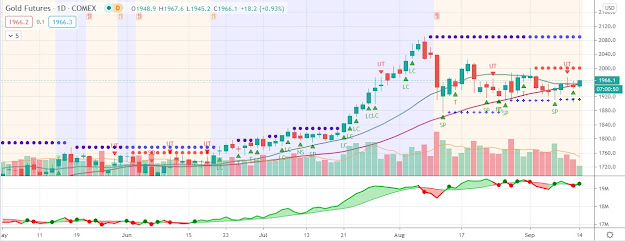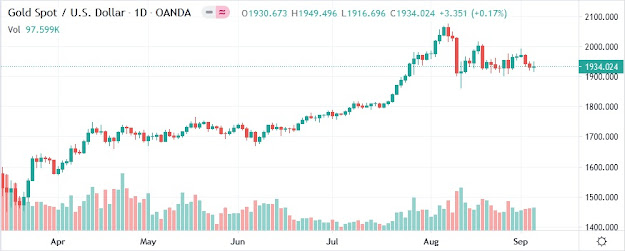Central Bank Gold Purchases to Hit New Record
A driving force behind the bull market in gold over the past several
years remained in full gear last month, according to the International
Monetary Fund (IMF).
Earlier today, the IMF reported that Brazil, Kazakhstan and Turkey were the largest buyers of the yellow metal in October. In total, over 40 tonnes of gold were purchased by central banks in the previous month.
On a percentage basis, Brazil raised its holdings by the largest amount – 17.17 tonnes, or 48.6%, to 52.52. Additionally, the purchase marked the first time that Brazil increased its gold reserves since June of 2005.
UBS wrote in a note to clients that Brazil’s increase “is a chunky purchase by a central bank, and the gold market will likely sit up and pay attention to today’s news, not just because of its size but because this is a central bank that has not been active in the market for some time.”
The firm went on to say that “We would not be surprised to see prices reach $2,200 per ounce. Should prices undergo another correction in the short term then we would look for good support around $1,600.”
If the yellow metal were to reach the $2,200 level, it would represent an all-time high on a nominal basis, but not in real terms. In 1980, gold reached $850 per ounce, which on an inflation-adjusted basis equates to approximately $2,300 in today’s terms.
ScotiaMocatta went on to say that “As faith in policymakers wanes with their handling of the crises, we expect investors will not want all their wealth backed by paper assets and therefore will look to spread their risk by holding gold and other hard assets. Greater monetarisation of gold is likely to be bullish for prices.”
“Overall, we do not think we have seen the peak in gold yet as we think the world’s financial problems are far from over,” the firm continued. “However, the higher the gold price goes the more volatile trading is likely to become and the more nervous investors and funds are likely to be.”
Nonetheless, central banks in many of the world’s emerging economies have made substantial purchases in recent years. Many market strategists believe the purchases have been motivated by an effort to protect their nations from the currency debasement inherent in the monetary policies of central banks in the world’s most developed economies – including the Federal Reserve, European Central Bank (ECB), Bank of Japan, and Bank of England.
Earlier today, the IMF reported that Brazil, Kazakhstan and Turkey were the largest buyers of the yellow metal in October. In total, over 40 tonnes of gold were purchased by central banks in the previous month.
On a percentage basis, Brazil raised its holdings by the largest amount – 17.17 tonnes, or 48.6%, to 52.52. Additionally, the purchase marked the first time that Brazil increased its gold reserves since June of 2005.
UBS wrote in a note to clients that Brazil’s increase “is a chunky purchase by a central bank, and the gold market will likely sit up and pay attention to today’s news, not just because of its size but because this is a central bank that has not been active in the market for some time.”
The firm went on to say that “We would not be surprised to see prices reach $2,200 per ounce. Should prices undergo another correction in the short term then we would look for good support around $1,600.”
If the yellow metal were to reach the $2,200 level, it would represent an all-time high on a nominal basis, but not in real terms. In 1980, gold reached $850 per ounce, which on an inflation-adjusted basis equates to approximately $2,300 in today’s terms.
ScotiaMocatta went on to say that “As faith in policymakers wanes with their handling of the crises, we expect investors will not want all their wealth backed by paper assets and therefore will look to spread their risk by holding gold and other hard assets. Greater monetarisation of gold is likely to be bullish for prices.”
“Overall, we do not think we have seen the peak in gold yet as we think the world’s financial problems are far from over,” the firm continued. “However, the higher the gold price goes the more volatile trading is likely to become and the more nervous investors and funds are likely to be.”
Nonetheless, central banks in many of the world’s emerging economies have made substantial purchases in recent years. Many market strategists believe the purchases have been motivated by an effort to protect their nations from the currency debasement inherent in the monetary policies of central banks in the world’s most developed economies – including the Federal Reserve, European Central Bank (ECB), Bank of Japan, and Bank of England.




Comments
Post a Comment